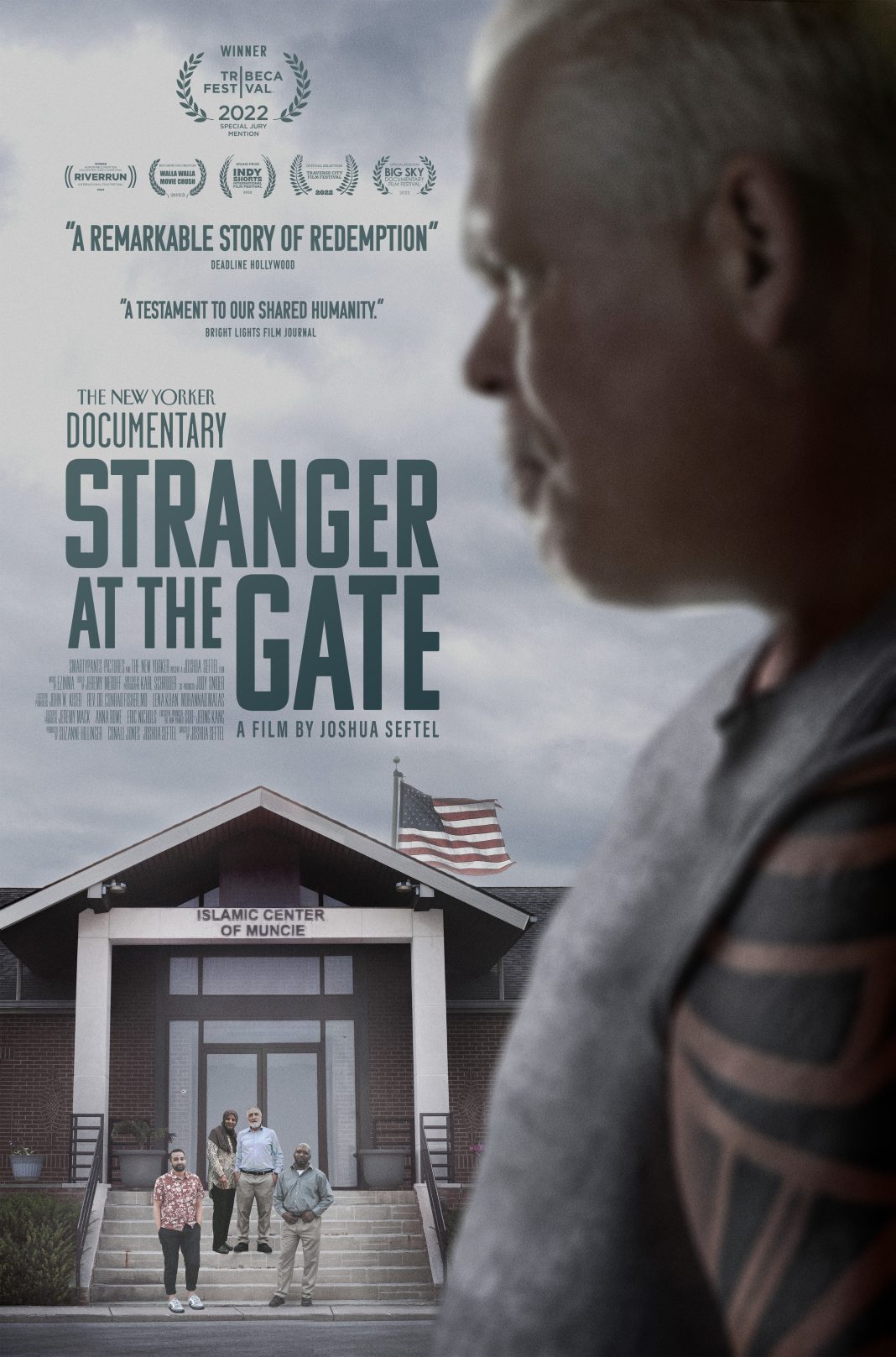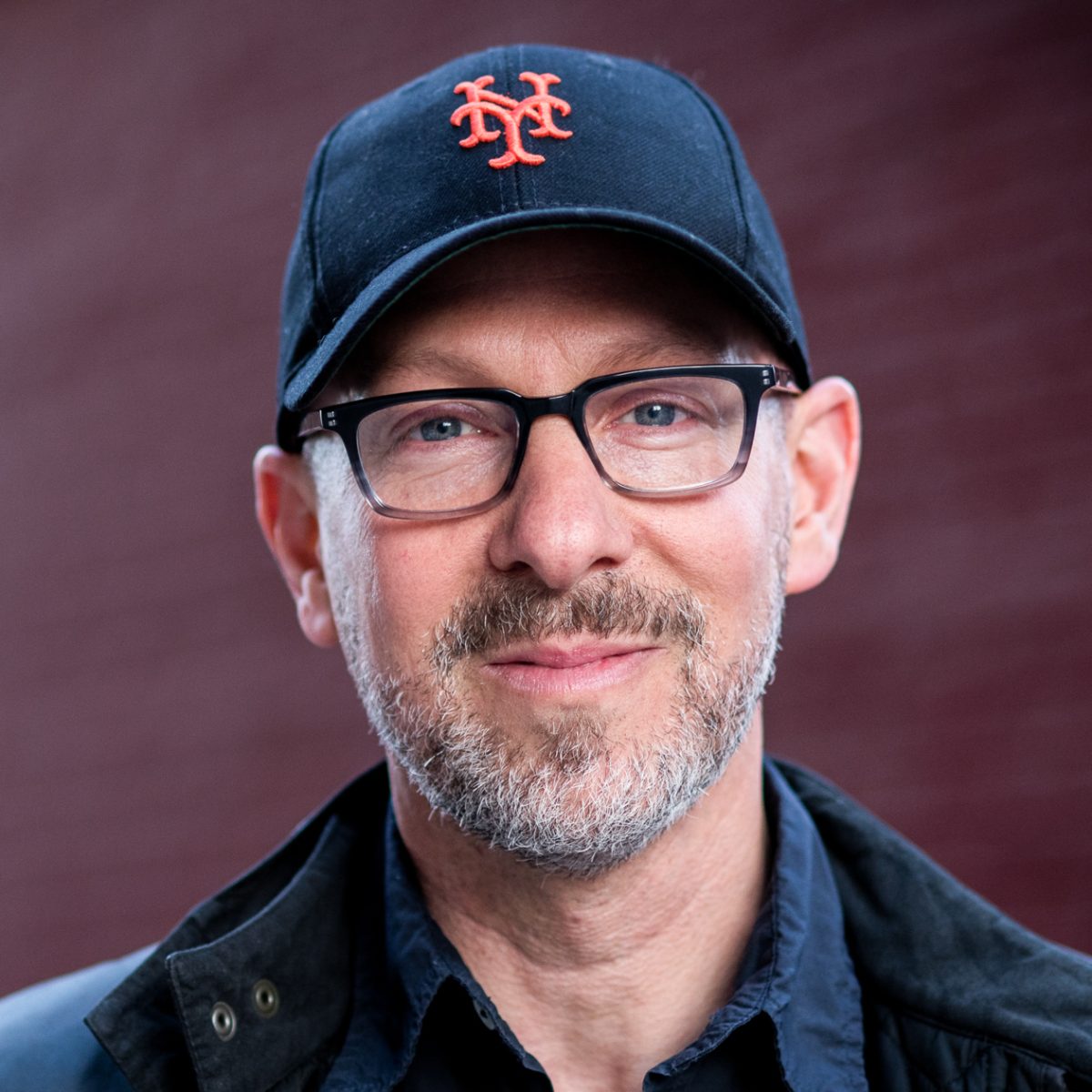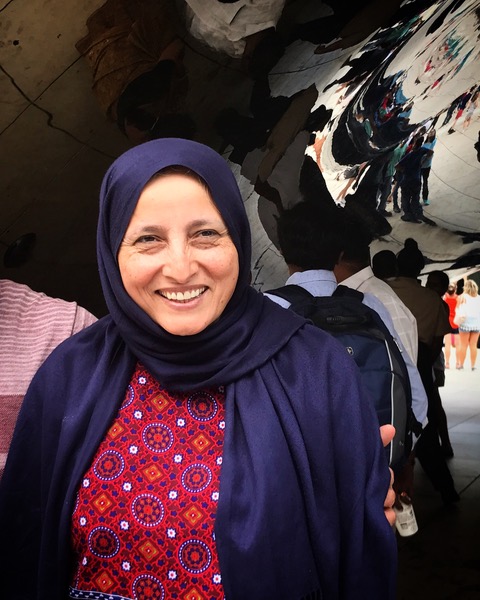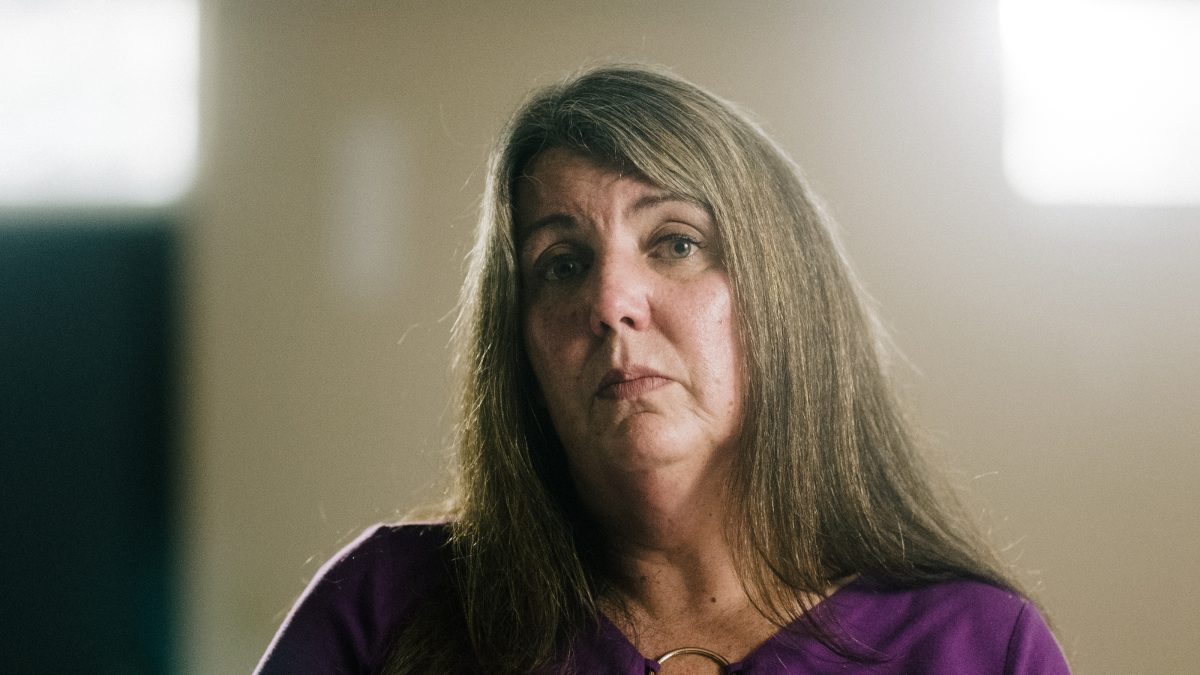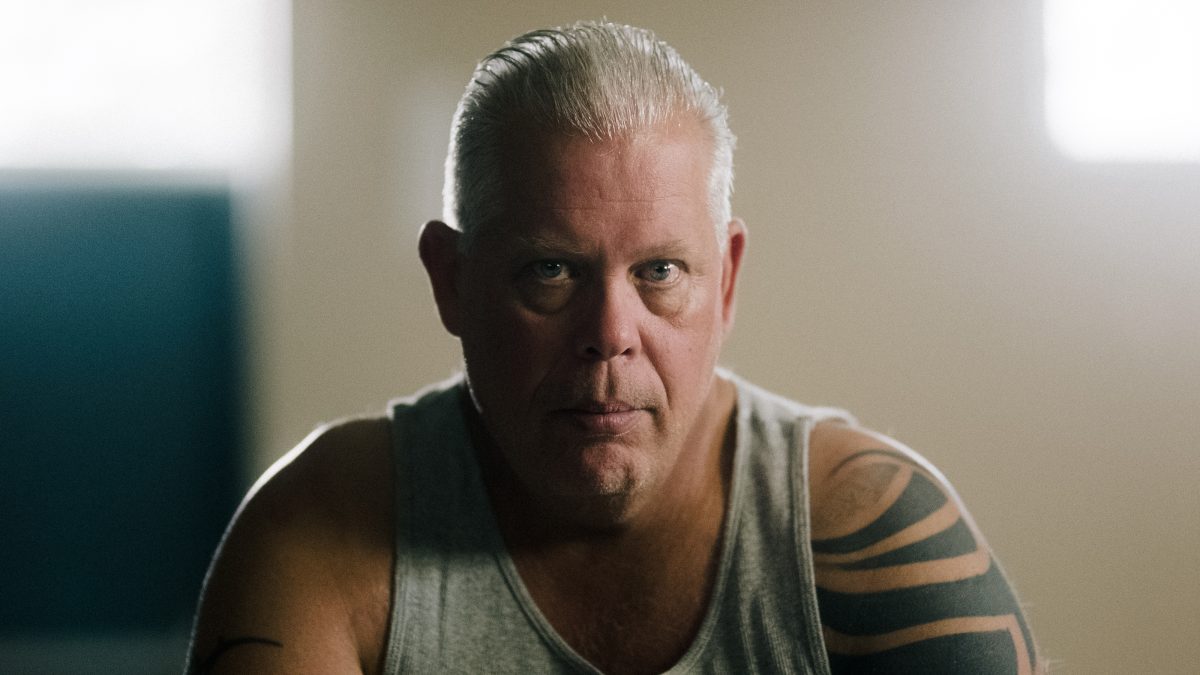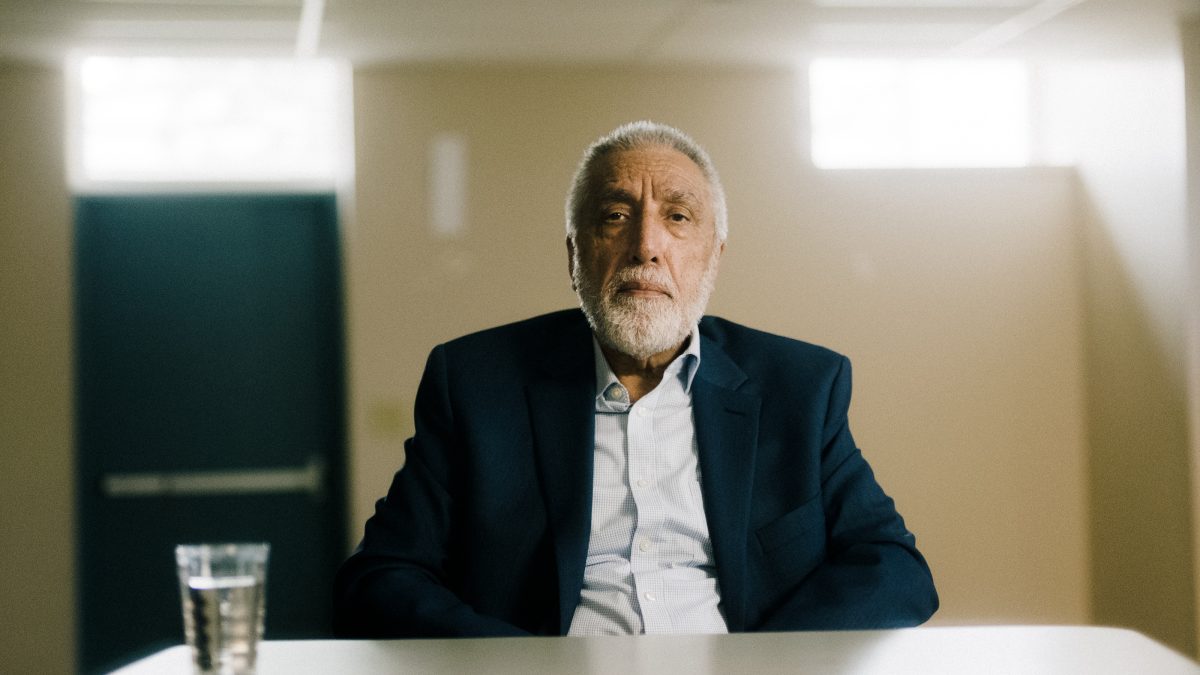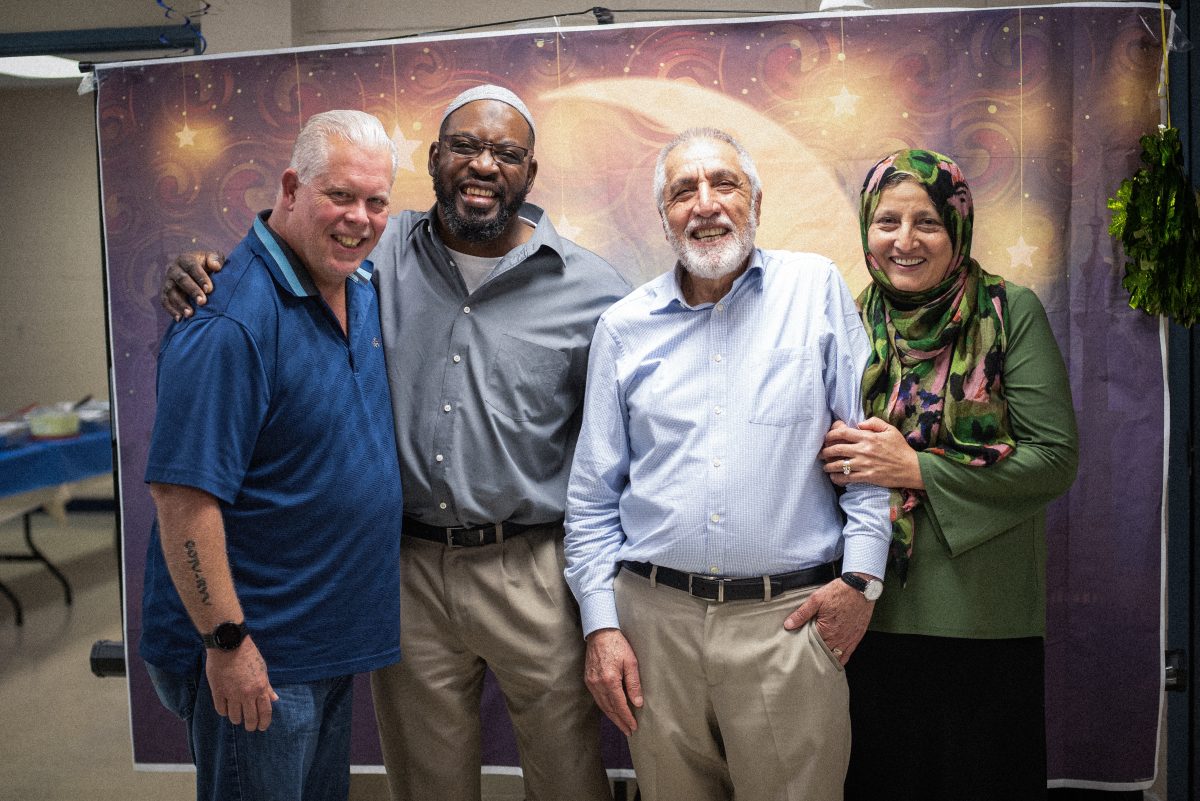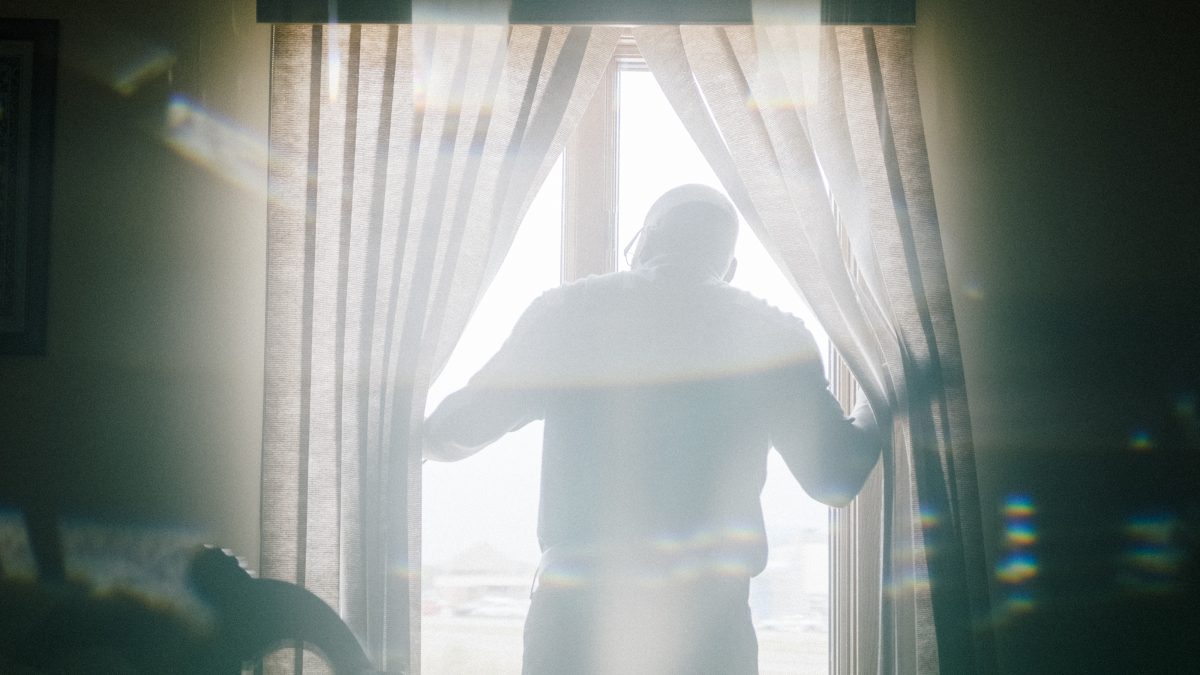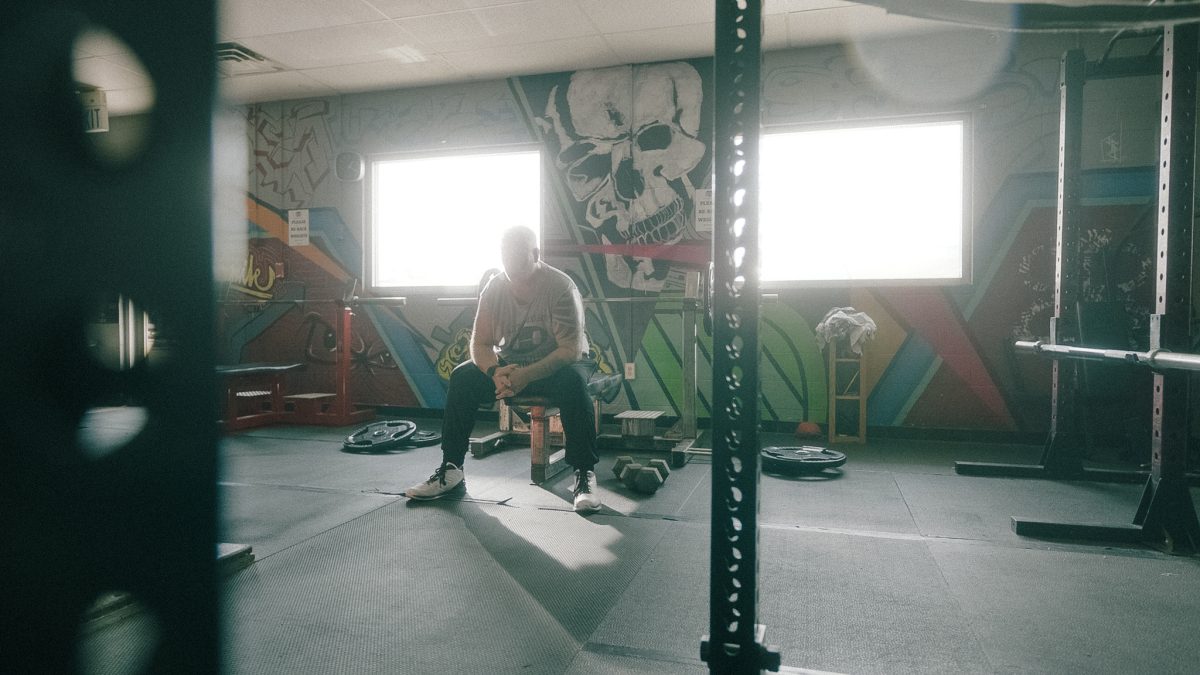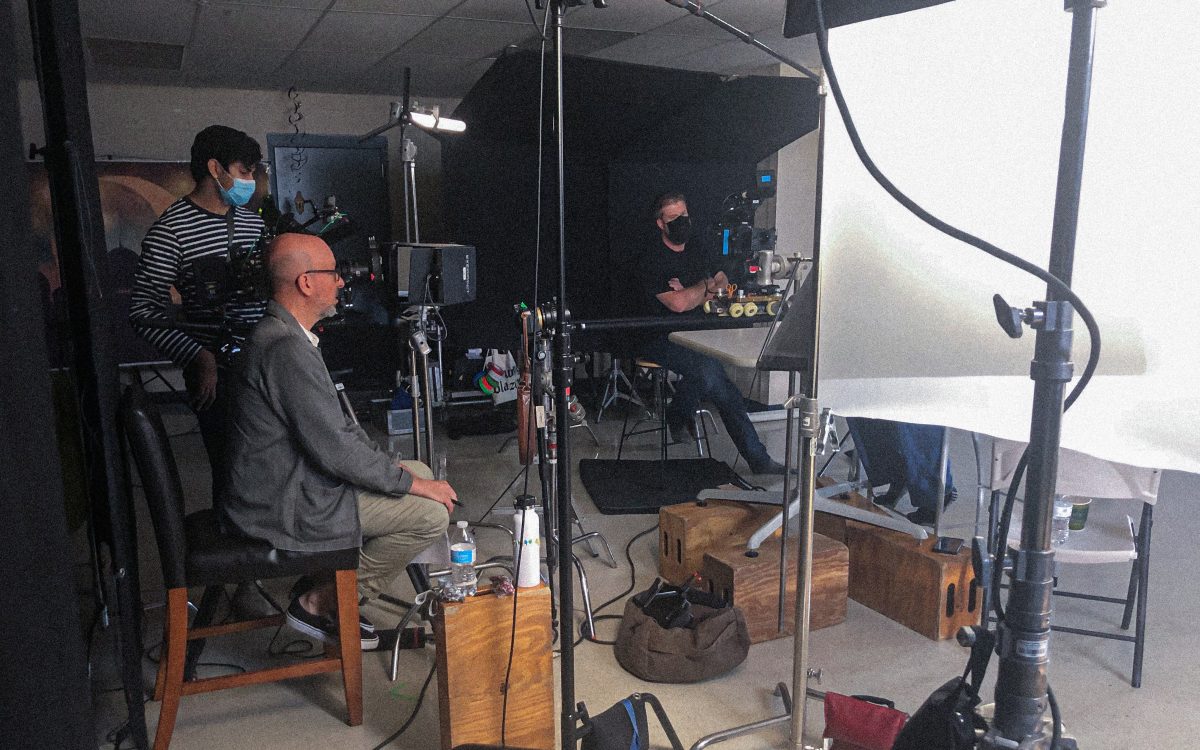An gesture of kindness becomes the saving grace for a troubled ex-military officer in Joshua Seftel’s involving and touching short documentary STRANGER AT THE GATE.
Film And TV Now spoke with the film-maker about his short film.
9/11 has become such a darkly iconic symbol for religion over the years since the tragedy in September 2001. How significant has the Muslim Centre portrayed in the doc become in helping those to understand the context of what happened that day?
For the Islamic Center of Muncie, 9/11 was a tragic event and as the community said in the film, “We were just as devastated as any other American.”
The Muslim center immediately reached out to the city of Muncie and other religious organizations in town to condemn the act. Within a few days they also organized an interfaith gathering at the center with several prominent religious leaders in town.
More importantly, members at the center interpreted the event as a wake-up call, that simply staying quiet and assimilating into society wasn’t enough, they needed to be more proactive – to voice their beliefs and connect with the broader community even more.
Richard ‘Mac’ McKinney is a model of restraint for being able to turn his perspective. Are there plans to expand on this short and make a movie of his life?
Yes, we have plans to adapt this short into a narrative feature, in hopes that this additional format will further amplify the message of this film.
How long did it take to make?
The pre-production stage was very involved and took several months. We listened intently to the community, found the key players and gained their trust. After production in Muncie, post-production took five months to sculpt the story.
How do the family feel about the documentary now?
The Bahrami’s were shocked when we first showed them the film.
In fact, they could not have even conceived that their story was large enough or even significant enough to be transformed into a film. To them, this story was just another day in their lives – it did not feel remarkable to them that they invited Mac into their Islamic Center and into their lives.
As Bibi mentions in the film, they welcomed Mac as they would any stranger. When I first reached Bibi, she had just come out of a six-day coma after her heart had stopped beating for six minutes and she was pronounced clinically dead.
After sharing my experience facing Anti-Semitism as a young boy and my resulting mission to combat hate through filmmaking, Bibi said she felt as if God had given her a second life for this very purpose. She now travels with us screening the film across the country and is the star at all of our Q&A discussions amplifying the message.
Tell us about how the New Yorker got involved.
We have been fans of The New Yorker’s films for a long time, because they have been stalwart supporters of the short documentary genre. We shared our film with them before our Tribeca premiere and it was a great match.
They’ve been wonderful partners throughout the film’s journey so far. It’s no surprise that four of the fifteen Oscar shortlisted short documentary films are from The New Yorker.
How do you see this film helping to change the powder keg of emotion that some people still feel towards the events of 2001?
The events of 2001 were traumatic for the nation and while there was a sense of patriotic unity in the months following September 11th, that feeling is long gone and in many ways the events of 2011 kicked off the polarizing environment we’re in now.
Where we see our film helping, is its ability to remind us of our shared humanity and to change people’s perception of the “other.” As our Executive Producer, Malala Yousafzai, has said about Stranger at the Gate, “I hope the film challenges every viewer to question their assumptions and show kindness to everyone they meet.”
Who and what are your key cinematic influences?
Almost fifteen years had passed since the events in the film, and we knew it would be a challenge to recreate the story on film.
We decided to treat the camera as a microphone, relying on the spoken word rather than re-creations to bring life to the past. The interviews are so key to the film, we treated them like verite scenes, I was mic’d and had a dialogue with the subjects that you can hear in the film.
We rolled on everything, so we could get those quiet moments in the interviews as well. We found it was important to leave room for the viewer to imagine what happened. Between interviews, the film uses aerial footage of the town, a visual reference to military surveillance.
This visual approach makes you feel like you can’t quite see what’s happening, so it leaves space to imagine the events that happened.
How do you script your documentaries and what is the start off point for you?
To me, the starting point for any story is the people involved.
I believe strongly in thorough research into who are the best voices to speak about a story and then calling them to conduct extensive pre-interviews. Not only does this lead to an accurate telling, it builds trust and they open up about things they may have never told anyone else.
Once all of this is collected, I have working sessions with collaborators to figure out what the core message and themes of the film will be. From there I build outlines with potential arcs for the story, which help define what we are shooting and on the questions we should ask in the interviews.
All this thorough prep helps give me clear ideas of where to take the story, but I still maintain an open mind while in the field.
What issues and themes are you keen to explore in future documentary subjects?
I’ve always been attracted to underdog stories and I don’t see that going away. ‘Stranger at the Gate’ was actually part of an ongoing series I’ve been doing for almost a decade called ‘The Secret Life of Muslims’ a series of short-form, first-person documentary films that uses humor and empathy to subvert stereotypes.
The series employs a cutting-edge distribution strategy, making it available on TV, radio, the internet, and at live events from NYC to LA. The first season has been viewed more than 56 million times in our effort to contribute to a dialogue of tolerance and peace in contentious times.
We have plans for a new season and we’ll be diving into that production soon.
Have members of Congress and veterans groups from Afghanistan conflict seen the film and are there plans to expand on the festival coverage already?
We are planning a screening at the Capitol and the White House. As for other audiences, we have had screenings with veterans and will do more soon.
What advice would you give people who are keen to start their film-making careers in documentary production?
There is so much to say! But I’ll try to give some pointers. Find a mentor and find a way to work for them.
You can learn so much. Find a community and/or collaborators. A lot of people see documentary film-making as a solitary activity, but all of the great films involve a passionate team. It takes time to find people that share your values, interests and appreciate your personality, but it’s important.
Make your own things. Even if they are small, just make things. You will learn a lot. How has the festival circuit helped your film? The festival circuit has been huge for the success of our film and in getting its message out into the world.
For a time we weren’t sure how well it would be received, but festival after festival it kept winning awards, which brought it more attention and it seemed to snowball to where we’re at now, shortlisted for an Oscar with 15 other films.
Finally, what are you most proud of about this short?
I’m most proud of the impact it’s had on people. We’ve screened the film over 70 times, it has hundreds of thousands of views online and the message of the film has now been referenced in media all around the world, to literally millions of people.
The message is about shattering stereotypes and being open to strangers and being kind to one another. Knowing that millions of people have been impacted in such a positive way makes me really proud.
Now read Film And TV Now’s review of the short here:


